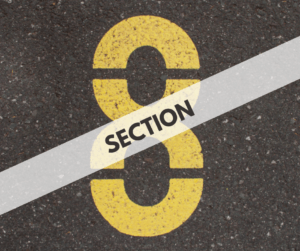
Pros:
- Secure & reliable rent payments. If a person applies for Section 8 housing and passes the screening, he/she would receive a voucher for 70-100% off of their monthly rent. After a waiting period of 30 to 60 days, you would start receiving rent payments from the government, and in most cases, you would start to receive monthly payments from the tenant as well.
- The ability to increase rent annually. Section 8 lets landlords raise the rent annually, by up to 8%. So, over time this would bring more income to the property owners, rather than renting an apartment to private payers.
- Motivation to maintain the property. Section 8 requires tenants to take care of the rental property, which can protect your investment.
- Huge amount of potential tenants. Section 8 provides you a big amount of potential clients, due to the government financing rent payments.
- Durable property rent. Section 8 can help lower vacancy and bring more profit, as a result of Section 8 tenants renting the property for a longer period of time compared to private ones.
Cons:
- Dealing with government regulations & red tape. It’s expensive to qualify and manage a property for Section 8 lodging, mostly in light of the public authority organization.
- Delayed rent payment. The first government rent payment will not be received until 30-60 days after move-in.
- Financial delays and extra expenses. Though, when accounting issues are beneficial for you, the time and strength to manage a Section 8 office to fix their mistake can be expensive.
- Strict and costly inspections. Properties that qualify for Section 8 must pass strict inspection. Most of the time, properties fail the first inspection. Also, reinstatement of Section 8 can be more costly.
- More chances of wear and tear. Tenants can cause more wear and tear to a property because their lease is financed and potentially free for them. An occupant may be less careful about the property, which can lead to untrustworthy and indiscreet conduct that builds wear, tear, and harm.
- Overdue payment. Despite the fact that most of the Section 8 lease payment is paid by the public authority, the occupant is typically liable for paying part of the month-to-month lease payment. In case the tenant does not pay his part of the rent, it is mandatory for the homeowner to go through the Section 8 eviction process, meaning he/she will gain less profit or maybe even lose money.

